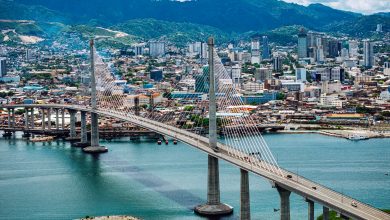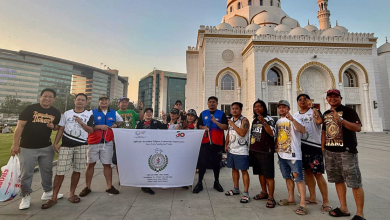The United States’ top envoy to Manila on Wednesday called China’s recent missile launch in the disputed South China “provocative” and a violation of international law.
“We have long been concerned and it’s not just the US but I think countries in the region have been concerned about aggressive unilateral actions in the disputed areas including militarization in the area,” US Ambassador Sung Kim told journalists at America’s Fourth of July reception in Makati City.
Kim lamented that China has continued to renege on its commitment that it will not militarize the waters, where it has installed surface to air missiles in several contested features it recently transformed into artificial islands.
“China itself has indicated that it would stop militarization but obviously that has not happened,” he said. “It’s clear that countries should behave according to international practices and laws.”
China conducted a missile launch in the South China Sea, in a move that could flare up tensions in the resource-rich waters.
It was reported that China tested multiple anti-ship ballistic missiles over the weekend while the G-20 summit in Osaka, Japan, which was attended by US President Donald Trump and other world leaders, was taking place.
“We obviously urged all countries to refrain from provocative and unilateral actions that’s inconsistent with international norms and practices,” said Kim.
“We have stated our position from sometime now and I believe that our friends in the Philippines agree that countries such as China should refrain from such actions.”
China claims a huge swathe of the South China Sea as part of its territory, but the Permanent Court of Arbitration tribunal in The Hague invalidated this claim in July 12, 2016 following a case filed by the Philippines in 2013.

1-Buried storage facilities, presumed to be for fuel, water, or other base necessities.
2-A sensor/communications facility topped by a radome.
3-Mobile shipping crane used to transfer cargo between ships and dock facility. In the satellite image, it can be seen at the middle of the dock next to several ships, while in the Inquirer photo it is at the eastern end of the dock.
4-One of the four point defense facilities built around the base in 2016.
5-A large lighthouse.
File Photo and information from Asia Maritime Transparency Initiative | Center for Strategic and International Studies (AMTI CSIS)

6-The over 3,000-meter airstrip, completed in early 2016.
7-Hangar space for 20 combat aircraft, completed by late 2016. Another four such hangars stand at the northern end of the runway.
8-Four bigger hangars for large aircraft, completed in early 2017.
9-Underground storage tunnels, likely for ammunition and other materiel, built during 2017. Identical buried storage facilities can be found on Fiery Cross and Subi Reefs.
10-A high frequency “elephant cage” radar array, so called because the circular construction of the antennae resembles a tall fence.
11-One of the four point defense facilities built around the base in 2016.
12-Hardened structures with retractable roofs believed to be shelters for mobile missile launchers, completed in 2017. In the Inquirer photo, the top of the radome for the nearby tower, which will presumably be used for targeting, can be seen assembled on the ground, waiting for installation.
File Photo and information from AMTI-CSIS
Beijing has ignored and belittled the ruling, maintaining it has “indisputable” and “historical” claim over nearly the entire waters even as it encroaches on the territories of its smaller neighbors like the Philippines.
Undersea gas, oil and mineral deposits have been discovered in several areas in the South China Sea. China has also claimed and developed some features within the West Philippine Sea.
Although not a party to the disputes, the US has declared that it is in its national interest to ensure freedom of access to the region’s sea lanes and air zones and that disputes are resolved peacefully.
“Freedom of navigation are important rights that should be protected. We will do what is necessary to protect those rights,” Kim said.
(Mika Dela Paz)




